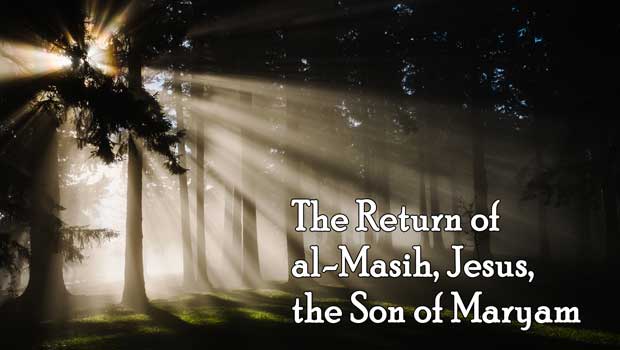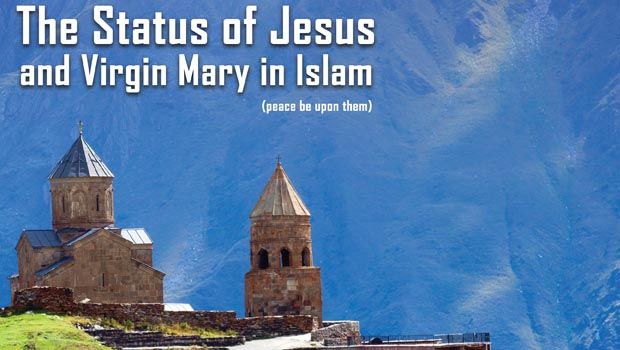Humanity has been busy throughout its history, supplicating, bowing down, and engaging in diverse acts of worship. In the annals of religious observance, however, people have codified worship of many false gods. Worship of the sun was quite common. An Egyptian cult deified the sun as Ra, ruler of the heavens, and the sun figured centrally in Babylonian and some Asian religious cults. For the Aztecs, Tonatiuh was the sun god, and demanded human sacrifice as a demonstration of their esteem and gratitude or else the sun would refuse to provide its warmth and energy to earth. But the Aztecs, like many cultures, had a multitude of gods in their pantheon – gods of creation, nature gods, gods of fertility, gods of death, and many others. Many cultures deified their emperors, seeing them as living gods on earth. The cult of Devaraja, the God King, was an ancient state religion in Cambodia. The story of the Egyptian Pharaoh typifies the worship of human leaders. In telling the story of Moses going to Pharaoh, the Quran says, “When Moses came to them with Our clear signs, they said, ‘This is nothing but spellbinding eloquence devised: never did we hear this among our forefathers!’ And Moses replied,‘My Sustainer knows best as tow ho comes with guidance from Him, and to whom the future belongs!Verily, never will evildoers attain to a happy state!’ Whereupon Pharaoh said, ‘O Chiefs! No god do I know for you but myself…” (28:36-38).
Weird objects of worship figure in history as well, some of which continue to this day. A small sect of Buddhists in the Himalayas engage in phallic worship, believing that displaying images of a phallus in their homes, cars, or on rooftops provides protection from evil and gossip, and aids in fertility. Then there is the veneration of rats. The Karni Mata Temple in India, built in the 15th century, is home to roughly 20,000 rats that are protected and worshipped. Huge bowls of milk, grains, coconut shells, and sweets are set out for the rats, and multitudes of people come to the temple, often from great distances, to pay homage to the rodents.
The worship of created things ranges from adoration of little critters like rats to deifying the vastness of the entire physical universe. Pantheists, in fact, believe that the Creator and the creation are one and the same, that there is no distinction between them. Then there are those, deists, who believe in God but eradicate Him from the everyday world of humanity and creation.They believe in a Creator, known through reason and observable signs in the natural world, but regard God as never intervening in the created world. Polytheism can be “hard” with multiple gods which are distinct and separate from one another, or “soft” where a number of gods are subsumed into a greater whole. Prophet Jesus, peace be upon him, for example, is considered by Trinitarian Christians as one of a three-fold God, the son along with the father and the holy spirit.
Shirk of Many Sorts
True monotheism declares there is only one God, andIslam further proclaims “… He is God, the One; God, the Eternal, the Absolute. He begets not, nor was He begotten, and there is none like unto Him” (112:1-4). Blurring that clean line of in compatibleness is the Old Testament which exclaims in Genesis 1:27, “So God created mankind in His own image, in the image of God He created them;male and female, He created them.” And the New Testament avers in Colossians 1:15, “The Son (Jesus) is the image of the invisible God, [he is] the firstborn over all creation.” According to the Quran, the previous scriptures were altered so that this idea (that man was created in God’s image), like many others, contradicts the pure tawheed of Islam.
In line with tawheed (oneness), God is incomparably great, the One, The Self-Existing by Whom all else subsists. The Quran makes it clear that “Those whom they invoke besides God create nothing, and are themselves created” (Quran 16:20). Thus, believing that God has a son is shirk (associating others with Him): “They blaspheme who say ‘(God) is Christ the son of Mary.’ But Christ said,‘O Children of Israel! Worship Allah, my Lord and your Lord.’[…]Christ the son of Mary was no more than an apostle; many were the apostles that passed away before him. His mother was a woman of truth. They had both to eat their food [to survive]. See how Allah makes His signs clear to them; yet see in what ways they are deluded away from the truth! Say: ‘Will ye worship, besides Allah, something which has no power either to harm or benefit you? But Allah- He it is that hears and knows all things” (5:72-76).
The Quraysh, the tribe that Prophet Muhammad (pbuh) was born into, believed in God as the creator of the universe, but they also venerated 360 idols, housed in the Kaaba, who they saw as patrons and protectors, and when they deemed necessary, they would appeal to this or that god to intercede with Allah, the “supreme deity,” on their behalf. The Quran addresses this with clarity: “The bestowal from on high of this divine writ issues from God, the Almighty, the Wise.For, behold, it is We who have bestowed this revelation upon you from on high, setting forth the truth; so worship Him, sincere in your faith in Him alone! Is it not to God alone that all sincere faith is due? And yet, they who take for their protectors others beside Him [are accustomed to saying], ‘We worship them for no other reason than that they bring us nearer to God’” (39:1-3).
So many verses in the Quran stipulate the absolute space around the oneness of God, an amplitude of uniqueness and greatness that no reference or association can touch. Yet, human beings continue to muddy the crisp, clean lines of tawheed with partners, intermediaries, and/or representations that, they think, serve as god or conduit to god. Muhammad Assad comments on verses 39:1-3 above, “This relates not only to the worship of saints, angels and ‘deified’ persons as such, but also to that of their symbolic representations (statues, pictures, relics, etc.) and, in the case of defunct human personalities, of their real or reputed tombs. Since all such practices are based on the worshipper’s hope of ‘mediation’ between himself and God, they obviously conflict with the concept of His omniscience and justice, and are, therefore -notwithstanding their widespread occurrence -utterly rejected by the Qur’an.”Indicating the significance and emphasis of tawheed, Abu Said Al-Khudri narrated, “A man heard another man reciting ‘Say: He is Allah, the One.’ And he recited it repeatedly. When it was morning, he went to the Prophet and informed him about that as if he considered that the recitation of the surah by itself was not enough. Allah’s Messenger said, ‘By Him in Whose Hand is my life, it is equal to one-third of the Quran’” (Bukhari).
Human beings, again and again, seek in vain to visually or existentially “represent” God. But the utter simplicity and elegance of tawheed is joined with belief in al-ghayb. This term is most often translated as “the unseen,” as in the following verses: “This is the Book about which there is no doubt, a guidance for those conscious of Allah – who believe in the unseen, establish prayer, and spend out of what We have provided for them” (Quran 2:2-3). The meaning of “al-ghayb” is comprehensive, including all those things which are beyond direct human observation or perception. This includes, writes Assad, “the existence of God and of a definite purpose underlying the universe, life after death, the real nature of time, the existence of spiritual forces and their interaction, and so forth.”Without belief in al-ghayb, one is left only with the observable, measurable world, a realm that is limited and narrow in the ultimate scheme of things.
Ego and Illusory Superiority
Worshipping something corporeal, material and tangible, like a rat, seems reasonable to some. But to most people it is ridiculous. Also nonsensical is the worship or veneration of ancestors,quite common throughout history. Ancestor worship is a type of shirk in which people pray to their dead ancestors for protection, good fortune, or intercession with God or “the gods.” The Shinto religion of Japan combined ancestor worship with animism (the belief everything in the universe, every created being, object, and natural phenomena possess souls) and tribalism. Shinto has been described by some commentators as a tribal religion, “a religion of Japaneseness.” Humans are ever prone to elevating their own group, seeing it as special, exceptional, chosen, and so on.
Illusory superiority is a cognitive bias, studied in social psychology, whereby individuals overestimate their own qualities and abilities, relative to others. Cultures and nations also are prone to over-valuing their own group based on a belief of inherent superiority and virtue. This correlates to perceiving other cultures with distrust and fear. George Murdock, in his 1949 book, Social structure, defined ethnocentrism as a “tendency to exalt the in-group and to depreciate other groups.”
Prophetic Denunciation of Tribalism
The Prophet (pbuh) denounced strong loyalty to one’s own group to the extent that it feeds ego-driven impulses, invigorates a sense of superiority, and compromises one’s commitment to fairness and justice. He said about the prejudicial zeal and partisanship of tribalism (asabiyyah), “Behold, God has removed from you the arrogance of pagan ignorance with its boast of ancestral glories. Man is but a God-conscious believer or an unfortunate sinner. All people are children of Adam, and Adam was created out of dust” (Tirmidhi and Abu Daud). By extension, asabiyyah includes racial, nationalistic, or any other biased, sectarian, small-minded allegiance to a group. The Prophet, on another occasion, reiterated this important point: “He is not of us who proclaims the cause of tribal chauvinism (asabiyyah); and he is not of us who fights in the cause of tribal chauvinism; and he is not of us who dies in the cause of chauvinism” (Abu Daud). When he was asked to explain the meaning of “tribal chauvinism,” the Prophet answered, “It means helping your own people in an unjust cause.”
One God lays the foundation for an understanding of one human family whose demarcations into various tribes and nations are meant, not to divide and cause dissension, but to bring about greater understanding and cooperation among human beings. The Quran eloquently states, “O people! Behold, We have created you all out of a male and a female, and have made you into nations and tribes, so that you might come to know one another. Verily, the noblest of you in the sight of God is the most righteous of you. Behold, God is all-knowing, all-aware” (49:13). Divisions among humankind because of race, nationality, color, gender, or class are among the illusions which are mistakenly experienced as reality by the lower self, the ego. Islam propounds the unity of the human family – all races, nations, colors, genders – beings created by God who can distinguish themselves by cultivating taqwa (love and fear of God, God-consciousness, virtue), and developing their personal endowments in harmony with their surrender to God.
False God of Desire
Any creature, object, or concept of the created world can serve as a false god. Even money or fame can function as false gods for an individual if he or she renders dominant attention, love, dedication, service, and/or deference to that object or objective. False gods of most sorts are exposed, easily, for being part of the creation, for being, therefore, subject to discontinuation, destruction, or death.Their deification, simply, is fictitious and foolish. Rats can be stepped on and squashed, fame or fortune can disappear in an instant, and carved idols, themselves worshipped (and also symbolic of all false gods), can be smashed. The Quran describes the scene when Prophet Ibrahim, peace be upon him, topples the foolish objects of veneration of his people: “…he approached their gods stealthily and said, ‘What! You do not eat [of the offerings placed before you]? What is amiss with you that you do not speak?’ And then he fell upon them, smiting them with his right hand.Then the others came towards him hurriedly. He said, “Do you worship something that you have carved, the while it is God who has created you and all your handiwork?” (37:92-97). Allah SWT says in another verse, “Unto every people Allah has sent a prophet who called them to worship Him alone, and to forbid them to serve false gods [al-taghut]” (16:36).
What is harder to recognize and expunge from the soul is the strong pull of one’s own desires to such extent that they outrank the importance of following religious/spiritual guidelines and wisdom. Desires often lead individuals astray, as stated by Abu Hamid Al-Ghazali: “Our base desires are numerous and human beings are seldom free of them. They all share a common root, namely love of this world. That is the origin of every fault, the basis of every shortcoming, the source of all corruption. Filled with the love of this world, a person becomes so attached to it that he fails to make provision for the Hereafter.”
Imam Ibn Al-Qayyim said, “It is an illness of hearts and minds that we choose the present experience of worldly time which is very brief in duration, over the unseen reality which is eternal. This eternity if known only by eman, and weak eman is a shallow insight. It is through eman that our inner sight gains clarity and the sharpness of focus necessary to penetrate the veils of material deception.” Material deception includes not just the allure of money and possessions. It includes giving undue importance to earthly, personal, egotistic matters – that is, unspiritual matters. That is not to say that the earth or a person’s self-interest stands in distinct and separate place to spiritual matters. But the Islamic challenge is to imbue life on earth and personal living with spiritual and ethical substantiality. Otherwise the ego, the lower self, constructs all sorts of stories and delusions to guard its ongoing dominance and its preoccupation with the ephemeral and false.
The inner voice of the ego, a chatter that endlessly cycles through the mind, says things like “I have to get more money. I deserve the good things in life…security, pleasure, privilege…I’ll be happy when I can buy whatever I want.” The chattering ego also trumpets it’s the importance of self, but it is the little self that is talking – “They should recognize how much I’ve done…I’m really smarter and more dynamic than them. Can’t they see that?!” The lower self also doesn’t much care if it is happiness or misery that it spouts and reinforces – “Nobody has suffered the way I have. I never get a break. Things just don’t go my way…I might as well just give up.” The tyranny of the inner chatter is referred to in the following hadeeth: “Whoever prays two rakaah and does not talk to himself about this life’s affairs, his previous sins will be forgiven” (Bukhari).
Signs in the Creation Point to God
Rather than worshipping any being, creature, or object of the creation, Muslims look to the created world to find and reflect upon the Signs pointing to God. They are nearly limitless and a multitude are mentioned in the Quran. In fact, the Quran points out Signs of God in the natural world, in the everyday lives of human beings, and in history:
Signs pointing to Allah SWT in the natural world: “It is Allah Who causes the seed-grain and the date-stone to split and sprout. He causes the living to issue from the dead, and He is the one to cause the dead to issue from the living. That is Allah. Then how are you deluded away from the truth? He it is that cleaves the day-break; He makes the night for rest and tranquility, and the sun and moon for the reckoning [of time]: Such is the judgment and ordering of the Exalted in Power, the Omniscient. It is He Who makes the stars for you, that you may guide yourselves, with their help, through the dark spaces of land and sea: We detail Our signs for people who know” (6:95-97).
Signs pointing to Allah SWT in the existence and everyday life of human beings: “And among His Signs is this – that He created for you mates from among yourselves, that you may dwell in tranquility with them, and He has put love and mercy between you: verily in that are Signs for those who reflect. And among His Signs is the creation of the heavens and the earth, and the variations in your languages and your colors: verily in that are Signs for those who know. And among His Signs is the sleep that you take by night, and by day the quest for some of His Bounty: verily in that are signs for those who hearken” (30:21-23).
Signs pointing to Allah SWT in history: “We took the Children of Israel across the sea: Pharaoh and his hosts followed them in insolence and spite. At length, when overwhelmed with the flood, he said, ‘I believe that there is no god except Him whom the Children of Israel believe in: I am of those who submit.’ Ah now! But a little while before, you were in rebellion and spread corruption! This day shall We save you in the body, that thou may be a sign to those who come after you! But verily, many among mankind are heedless of Our Signs!” (10:90-92).The Quran exhorts people to use all their faculties, the sense of seeing and hearing, the ability to reason and deduce, and the capacity to reflect on what they observe and analyze.
A Vast, Transcendent Realm
The believer has conviction that there is one God – unseen and beyond human perception – Who is unlike,distinct from, and all-surpassing of the created world.One transcendent being, a singularity of greatness and perfect awareness, has created this universe of duality.In this world of opposites – hot and cold, short and long, light and darkness – human beings, with some limitations of scope, can come to know the world and recognize the Signs of the Creator:“Consider the sun and its radiant brightness, and the moon as it reflects the sun! Consider the day as it reveals the world, and the night as it veils it darkly!” (91:1-4). We are, in fact, meant to encounter, contemplate, even study the world. Only in that way can we see the structure and design in all things created – “Consider the sky and that which built it, and the earth and that which has spread it out” (91:5-6) –a design ordering and proportioning all things so that life is imbued with orderliness, vitality, and sustainability. The intrinsic and profound order and proportion are also lodged in the self: “By the soul, and the proportion and order given to it; and its enlightenment as to its wrong and its right…” (91:7-8).
This primal human nature with order, proportion, and a fundamental moral sense, once thrown out of kilter, still remains a potential waiting to re-manifest in the human disposition and behavior. Living out of balance results is a gluttonous body, a quick-to-anger parent, a profit-obsessed business predator, and the myriad other maladies that plague the human condition. The believer is challenged to bring all aspects of self into alignment with the One who brings order and proportion into existence. He is the One who has established a world of balance and harmony, manifested through cause and effect, homeostasis, positive and negative feedback mechanisms, energy flow, birth and death, decay and re-cycling, systems of communication and learning, dysfunction/disease and healing, and so forth. He, the Creator, originates and He also restores.
Through surrender, the believer transmutes the contradictions in his/her own soul, quiets the battling forces of desire in the mind and emotions, and brings all thoughts, feelings, attitudes, words, and behaviors into a coalescing harmony.In this endeavor lies a deep dimension of consciousness, God-consciousness, which holds the essence of who we are. With this essential orientation(fitrah – primal, pristine human nature), a fidelity of intention, meaningfulness, and devotion permeates each moment. The awareness found in being thus true to self in all interactions in the world and with other people, is a space in which all the reactive patterns of conditioned temperament collapse from their own insubstantiality. Quickness to frustration or anger, bitterness, resentment, never-ending grievance, blaming, arrogance, manipulativeness, compulsiveness, self-sabotaging, self-centeredness, unforgivingness, and so on, have no meaning of their own as they are nothing more than reflections of the ego’s self-proclaimed paramountcy.
The awareness yielded by personal integrity(an original or reinstated wholeness and soundness of being) pivots on giving one’s fullest attention to what is at hand.What sullies the mind and emotion has been cleared away -the egoic fears that demand control and constancy, and the egoic desires that clamor for non-stop embellishment of the small-minded me. Personal integrity is an amplifying discernment. It knows that thoughts and emotions are continually moving, changing, fluctuating with the always impermanent outer circumstances;and that no matter how much the lower self possesses, it wants more and more. With heightened discernment comes the thoroughly precious realization that beyond the ever-changing conditions of material life is a vast realm that transcends the personalized story of “poor me” or “great me.”In this domain, the individual lives to refine and elevate the soul: “He succeeds who causes this [self] to grow in purity, and he fails who corrupts it!” (91:9-10).The outer world of ego-driven pursuit of(illusory) superiority and dominance – the root causes of shallow happiness for some and incalculable misery for the many – no longer prevails. The inner life holds the promise and propagative seeds of enlightenment. Turning inward to find genuine awareness and devotion, while living pragmatically in the world – this is the effect of surrender. This is the wellspring of enduring peace and joy.
“We will show them Our Signs in the universe, and in their own selves, until it becomes manifest to them that this is the truth. Is it not sufficient in regard to your Lord that He is a Witness over all things?” (Quran 41:53).





